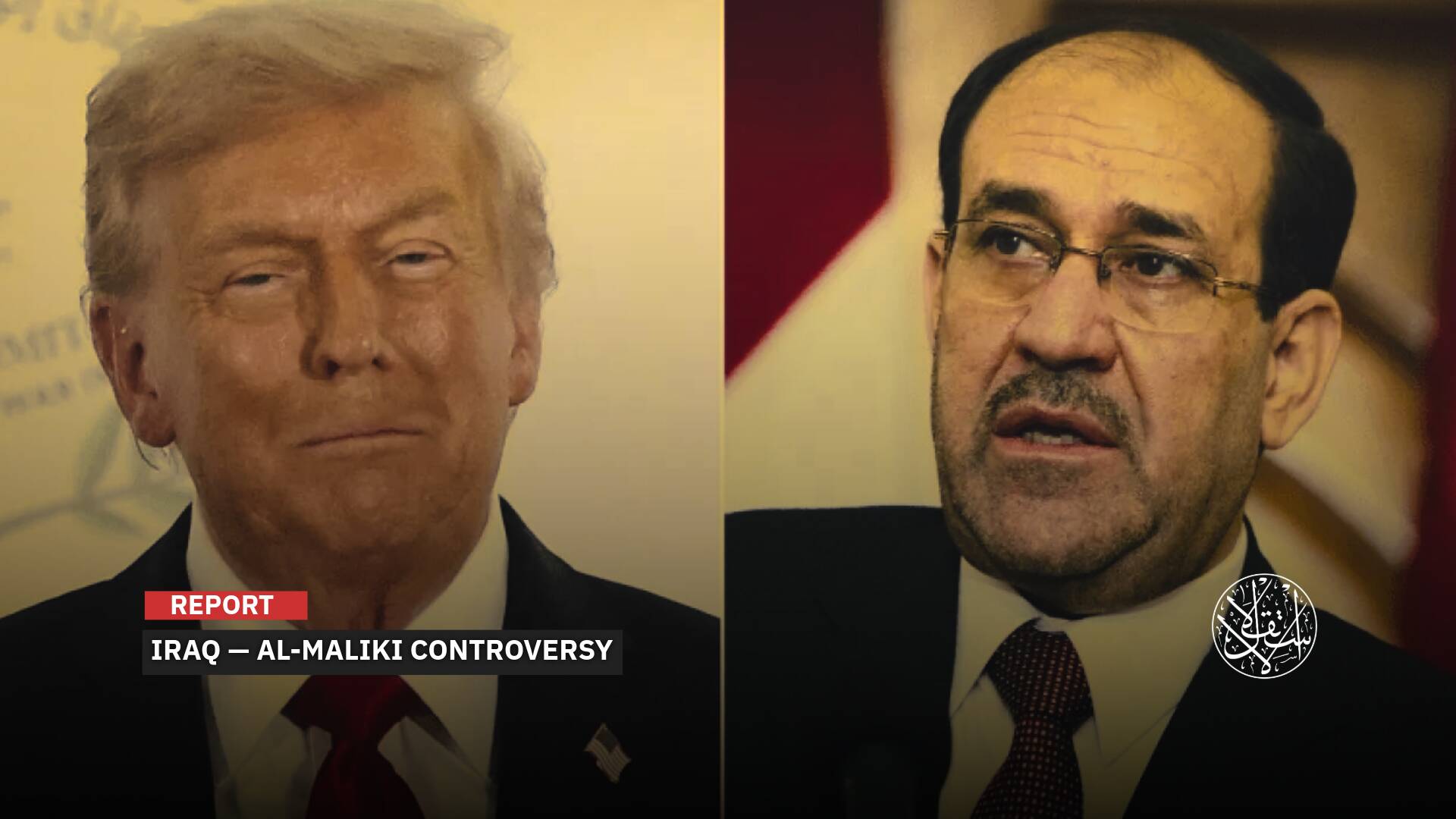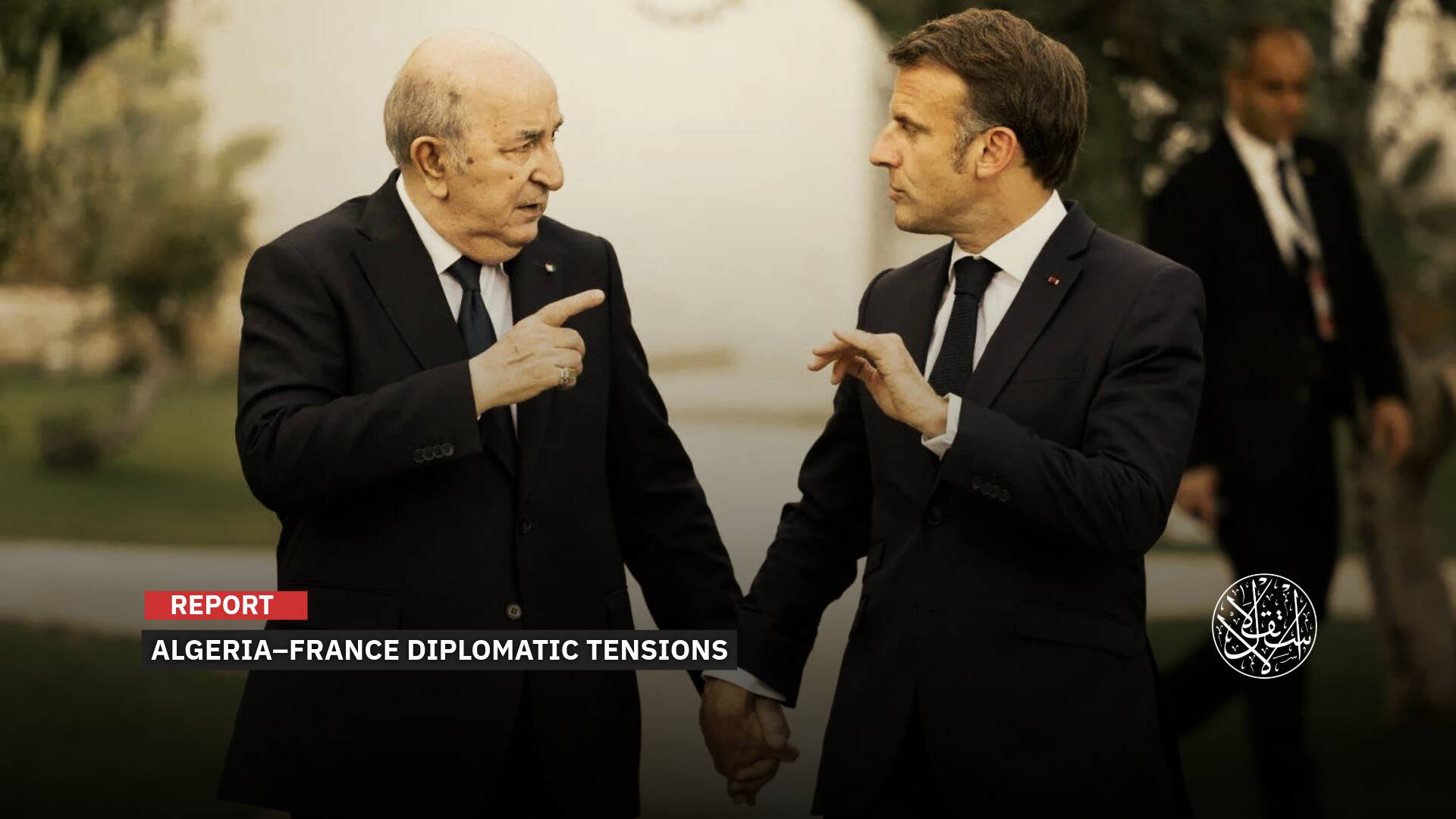Why Is Russia Eager to Normalize Relations with Taliban, a 'Russian Designated Terrorist'?

Russia is moving towards breaking taboos in its relationship with the Taliban, aiming for full normalization.
St. Petersburg International Economic Forum marked a turning point in the relationship between Moscow and the Taliban government in Afghanistan.
Relations between the two sides began to improve after a Taliban delegation participated in the forum starting in 2022, discussing opportunities for cooperation.
This participation has continued over the past two years, despite the Taliban being listed as a “terrorist organization” in Russia, where any public contact with it remains a criminal offense.
Accelerated Normalization
However, it appears that Russia is moving toward breaking the taboos in its relationship with the Taliban, aiming for full normalization and removal from the list of terrorist organizations.
In this context, Zamir Kabulov, the Russian presidential envoy for the South Asian nation, was quoted by state-run TASS news agency as saying that the foreign ministry and national security agencies “are putting finishing legal touches” on the Taliban's delisting in line with federal laws.
“A principal decision on this has already been made by the Russian leadership,” said Kabulov. “Hopefully, the final decision will be announced soon.”
The Taliban was added to Russia's blacklist in 2003, alongside groups such as al-Qaeda, for its support of separatists in the North Caucasus.
In separate comments on October 4, during the annual diplomatic forum on Afghanistan in Moscow, Russian Foreign Minister Sergey Lavrov urged Western nations to lift the sanctions imposed on the Taliban.
During the opening speech of the meeting, which was also attended by Taliban Foreign Minister Amir Khan Muttaqi, Lavrov reiterated his call for Western countries to take responsibility for Afghanistan's post-US invasion reconstruction, lift sanctions, and return assets seized from Kabul.
Lavrov praised the current Afghan leadership for its efforts in combating drug trafficking and the Islamic State, although he did not specifically mention the Taliban.

In turn, President Vladimir Putin called for “building relations between Russia and the Taliban government,” emphasizing that the group “represents authority in Afghanistan.”
During a meeting with foreign news agency representatives in Moscow in June 2024, he stated, “We must assume that the Taliban controls the power in the country. And in this sense, Taliban is, of course, our ally in the fight against terrorism, because any authorities are interested in stability in the state they govern.”
Putin's remarks came on the sidelines of the St. Petersburg International Economic Forum, which included representatives from the Taliban among its invitees.
In this context, Russian Foreign Ministry spokesperson Maria Zakharova noted that efforts are underway to delist the Taliban as a terrorist group.
Lavrov had previously announced during Putin's visit to Uzbekistan days before the forum that Moscow plans to remove the Taliban from the list of terrorist organizations, stating that they are the actual authority in Afghanistan.
Russia has been gradually normalizing relations with the Taliban since its takeover of Afghanistan in 2021, following the withdrawal of U.S. troops after 20 years of U.S. invasion.
No international government has recognized the Taliban's administration, although China and the United Arab Emirates have accepted its ambassadors in their capitals.
In June 2024, the Russian Ministries of Foreign Affairs and Justice submitted a formal proposal to Putin to remove the group from “Russia's list of designated terrorist organizations.”
Kazakhstan made a similar decision in December 2023, although it began discussing this publicly only in June of the same year.
In Uzbekistan, another key country in Central Asia, the Taliban has also not been classified as “a terrorist organization.”
In contrast, the United States continues to oppose any move to ease sanctions or recognize the Taliban as the legitimate government of Afghanistan, focusing its discussions on the “group's violations of women's rights.”

In late May 2024, Alexander Bortnikov, Director of the Federal Security Service of Russia, accused NATO of facilitating the transfer of mercenaries and armed fighters from international terrorist organizations from the Middle East, North Africa, and Afghanistan to Ukraine to fight against the Russian forces there.
Consequently, Russia's growing interest in Afghanistan appears partly motivated by a desire to deter any Ukrainian attempts to use the country as a platform for attacks on Moscow through the Islamic State.
Meanwhile, the Taliban government aims to leverage Russia's support to gain international recognition and remove itself from “terrorist lists.”
A report by the French newspaper Le Monde on September 13, 2024, indicated that Central Asian countries, led by Uzbekistan and Kazakhstan, have begun to pursue rapprochement with the Taliban government in Afghanistan for economic and security reasons.
The report noted that the visit of Uzbekistan's Prime Minister, Abdulla Nigmatovich Aripov, to Kabul on August 18, 2024, marked a significant event for the Taliban regime, which seeks international acknowledgment.
This development comes as a significant shift, softening the historical animosity between the two sides. The former Soviet Union, with Russia at its helm, waged a ten-year war against Afghan mujahideen in the 1980s in support of a pro-Kremlin government.
The Carnegie Endowment for International Peace said the extremist cells of the Islamic State based in Afghanistan have grown stronger.
“The deadly attack on Moscow’s Crocus City Hall in March showed ISIS-K’s [Islamic State Khorasan] international reach,” it added.
When the Taliban entered Kabul in August 2021 amid the chaotic withdrawal of Western armed forces, many questioned its ability to govern the country.
A semblance of stability has been maintained, thanks to billions of dollars in humanitarian aid still flowing into Afghanistan.
In addition to addressing the Islamic State threat, Moscow seeks to collaborate with the Taliban government in combating drug trafficking, which can be accessed via Central Asian countries.
While opium production has surged as the Taliban solidified its control, it has recently collapsed following the implementation of strict measures, a development that Moscow has praised.

Economic Relations
Beyond security concerns, Moscow also hopes to develop economic relations with the Taliban.
Russian officials have renewed discussions about using Afghanistan as a transit hub for exporting Russian natural gas to India and other goods to ports in Pakistan.
“However, this requires a gas pipeline to be built through the mountains, and a railroad, which currently ends at Mazar-i-Sharif at the Uzbek border, to be extended,” as per Carnegie Endowment for International Peace.
There is a belief that a North-South Corridor from Russia to the Indian Ocean via Azerbaijan and Iran has a chance of becoming a reality. However, establishing a “railroad from Afghanistan to Pakistan is a pipe dream that is being pursued simultaneously by everyone (Uzbekistan, Russia, Kazakhstan, and Afghanistan)—and no one,” according to the same source.
“There’s a lot that remains unknown when it comes to Afghanistan’s economic ties with its neighbors. According to the World Bank, Afghanistan’s imports were worth $7.8 billion in 2023, and its exports—$1.9 billion: tiny amounts for a country of over 40 million people.”
According to the Russian Business Center in Afghanistan, trade between Russia and Afghanistan is estimated to be around $1 billion, a significant increase from 2021 figures. However, Russian Deputy Prime Minister Alexei Overchuk provided a more conservative estimate of $560 million.
Assessing the reliability of these figures is challenging, not only because Russian customs data is confidential but also because much of the trade with Afghanistan involves multiple border crossings and is settled in cash.
However, data from Uzbekistan, Afghanistan's primary gateway to the world, offers some clarity. Uzbekistan's trade with Afghanistan amounted to only $784 million in 2023, making it unlikely that trade with Russia exceeds that amount.
Nonetheless, both parties are eager to develop these relations. In May 2024, a Taliban delegation visited Kazan, Russia, to discuss investments in the oil and gas sector.
Still, in late September 2024, the Taliban expressed their desire for closer ties with BRICS, just a month ahead of the group’s summit in Russia.
“The Islamic Emirate of Afghanistan is interested in participating in the upcoming BRICS forum meeting and has shared its request with the host country in this regard,” said Hamdullah Fitrat, deputy spokesman for the Taliban government, in a video statement ahead of the group’s summit in Russia.
“Countries with major resources and the world’s biggest economies are associated with the BRICS forum, especially Russia, India, and China,” he added.
Currently, he went on to say, Kabul has “good” economic ties and commercial exchanges with the three countries.
“We are keen to expand our relations and participate in the economic forums of the BRICS,” Fitrat said.
The BRICS summit is scheduled to take place from October 22 to 24, 2024, in Kazan, Russia. The group comprises major emerging economies: Brazil, Russia, India, China, and South Africa, and has expanded to include countries from the Middle East, such as Iran and Egypt.
Investment in Afghanistan remains challenging, as despite being in power for three years, the Taliban has established few functioning state institutions, and it remains unclear who is managing the country.
Nevertheless, Russia, Kazakhstan, and other Central Asian countries have no choice but to lift restrictions on the Taliban to ensure their security and create new economic opportunities with their neighbors, concludes Carnegie.
Sources
- Afghanistan wants to participate in BRICS forum in Russia: Taliban official
- Russia Calls On West to Lift Sanctions on Afghanistan
- Taliban formally seek invitation to Russia’s BRICS summit
- Envoy: 'Russian leadership’ decides to delist Taliban as terrorist group
- Putin says Taliban 'our allies' in fighting terrorism World
- Russia set to remove Taliban from terrorist list, says Putin’s envoy
- Taliban FM to be ‘chief guest’ in Russia-hosted Afghanistan talks
- Why Is Russia Legalizing the Taliban?
- Le Monde: Central Asian countries restore trade relations with Afghanistan [Arabic]











